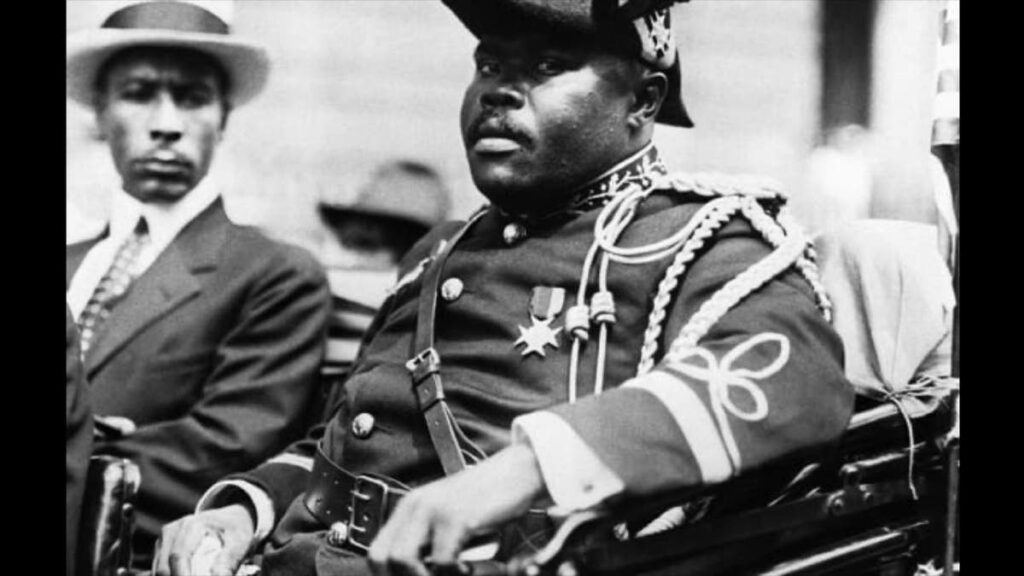Rastas on Marcus Garvey’s pardon: Welcome – but long overdue

Members of the Rastafari movement, who consider him a prophet, have always maintained that Jamaican civil-rights activist Marcus Mosiah Garvey Jr did no wrong.
And they believe his pardon by the US government – over eight decades after his death – proves that belief.
Garvey, Jamaica’s first national hero, was a black nationalist. He moved to the US, where he founded the Universal Negro Improvement Association and inspired many later civil-rights activists in the US, including Martin Luther King Jr and Malcolm X.
Then he was convicted of mail fraud and deported to his homeland. Many considered his conviction politically and racially motivated.
Fast-forward to 2025: Garvey was one of five people pardoned by outgoing US president Joe Biden on his final day in office on January 19.
The White House statement described him as “a renowned civil and human rights leader.” It added that advocates and lawmakers “praise his global advocacy and impact and highlight the injustice underlying his criminal conviction.”
Rastas react
Bobo Shanti priest Imsley of Zion told Sunday Newsday he is elated, both as a black man and a Rastafarian.
“Marcus Garvey came with a vision of redemption for black people, and he had a vision (called) Africa for Africans.”
He said for generations, Rastafarians have “rigorously advocated” for the powers that be to recognise and admit “the prophet did no wrong.
“You can fool some people sometimes, it have some people you can fool all the time, but you can't fool all the people all the time.

“It’s a historical fact that they (colonists) blatantly kidnapped us, took us ransom, extradited us out of Africa…And they stopped his (Garvey’s) work like the Black Star Line ships to carry us back home.”
In 1919, Garvey founded the first black-owned, black-operated steamship line, which transported people and goods to and from Africa. It ran until 1922, when it collapsed owing to financial woes after he was charged with mail fraud related to the ships.
Imsley said when they learnt the news of his pardon, Rastafari communities around the world were elated.
“And it’s a global response, not just the West Indies but the whole world…All the Pan-Africanists, you know, even leaders in Africa on the great continent.
“Rastaman have a saying: ‘We born in Trinidad but I was birthed in Africa,’ because that's where we originally come from.
“We never gave up on pursuing our vision. We are our ancestors' thoughts manifested in the flesh.
“It was long overdue.”
Priest Nyah Binghi said he knew Garvey would be pardoned someday, agreeing he did no wrong.
“He wanted the black people to go back to Africa, he wanted them to make a way for us…That's what his aim and objectives were for Africans – those at home and us abroad.”
Connecting Garvey to Rastafari, he said, “It was Garvey who said to look to the east (Africa), for the crowning of a black king. And Haile Selassie was crowned in Ethiopia.”
On November 2, 1930, Haile Selassie I was crowned emperor of Ethiopia – Africa’s oldest independent country.
Rastafarians consider him a descendant of King Solomon and the Queen of Sheba, assuming the title of King of Kings, Lord of Lords and Conquering Lion of the Tribe of Judah.
“He was a man of prophecy,” Imsley said.
In a statement to Sunday Newsday, Rastafari women’s group Empress Menen Rising agreed the move took too long.
It also added, “A pardon is no honour for a prophet.
“Without uplifting his legacy to the literature of American history and African-American history in particular, ensuring melanated (black) youth know their history in fullness, there is no honour.”
The group said Rastafarians have used Garvey’s teachings “among the divine principles of I and I livity and movements towards black freedom, redemption and international reparation.”
It said the pardon is not enough because “while other black leaders are more revered and even given a holiday, it is only on the cusp of 2025, 85 years since his passing, that Garvey’s name can now be spoken without dishonour.
“We are grateful that the US has stopped the slander against this great visionary and leader of Black Power, and look with hope to the African descendants of the US to remember Garvey’s words and wisdom to uplift them out of racialised America.”
Quoting Garvey, it said, “Liberate the minds of men and ultimately you will liberate the bodies of men.”
In an article by US magazine Rolling Stone on January 23, Garvey’s son Dr Julius Winston Garvey said, “It’s exciting because it’s one of the ways that we can rehabilitate my father’s name against the slander of a criminal conviction.”
Marcus Garvey’s life
1887: Marcus Mosiah Garvey Jr born in St Ann’s Bay, Jamaica
1914: Co-founded the Universal Negro Improvement Association and African Communities League
1916: Moved to Harlem, New York City
1919: Founded Black Star Line steamship line
1919: Survived assassination attempt
1919: Arrested for criminal libel
1920: Set up US$2 million Liberian Construction Loan for repatriation
1922: Charged with mail fraud after advertising sale of stocks on a ship his line did not yet own
1922: Black Star Line forced to shut down after $ woes
1923: Sentenced to five years in jail
1927: Deported to Jamaica
1929: Founded Jamaican newspaper The Blackman
1935: Moved to London
1940: Died at 52 after suffering several strokes
1969: Posthumously named Jamaica’s first national hero
2025: Posthumously pardoned by outgoing US president Joe Biden

Comments
"Rastas on Marcus Garvey’s pardon: Welcome – but long overdue"